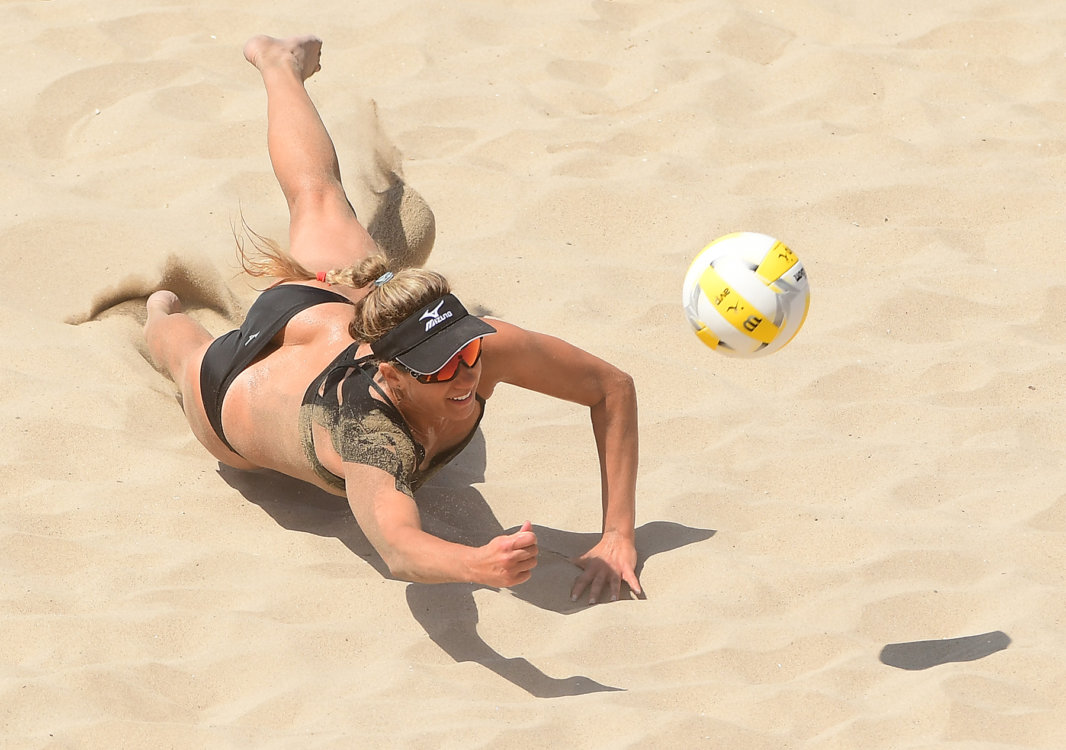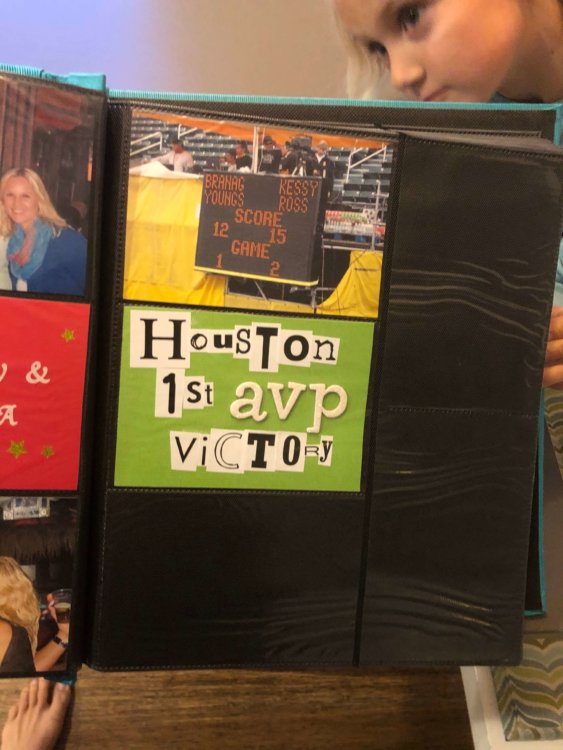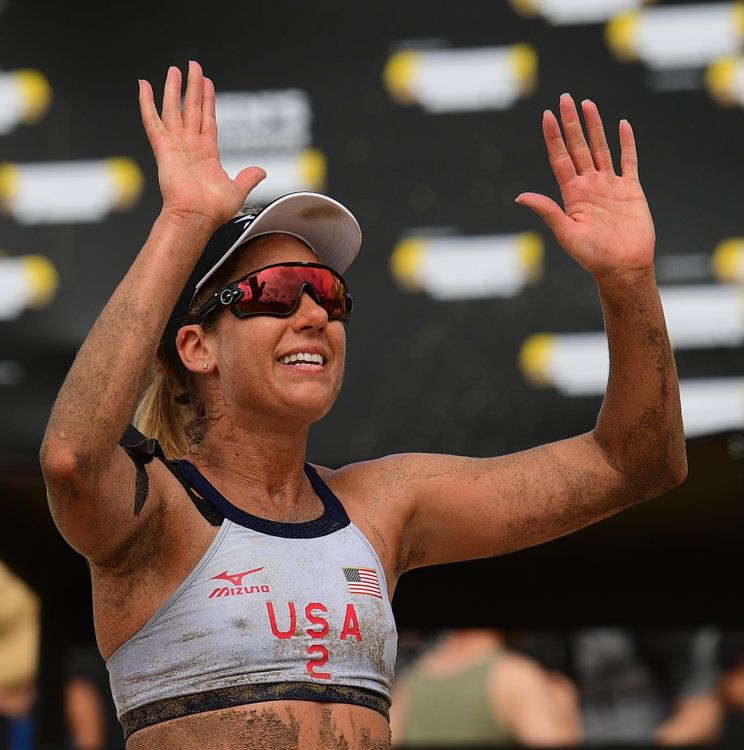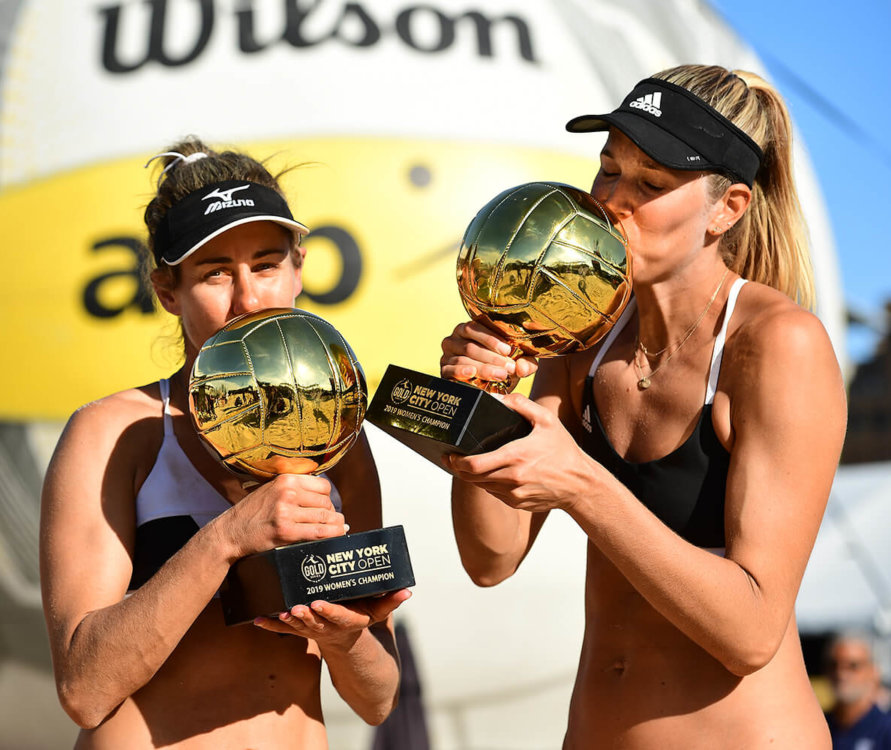It took me six tries to make my way through the AVP Qualifier just to make it to the Main Draw. After qualifying a few more times and doing well enough in a couple Main Draws to actually get an automatic bid into the tournament (huge!), I ended up back in the Qualifier at the end of the season… To say I never thought I’d ever win an AVP is an understatement.
Long story short, Jen Kessy took a chance on me the following season and we made it to the finals of the first AVP we played in together, (which was beyond awesome), but we came up just short. We made one more final that year, but couldn’t clinch it. Then, we made FIVE finals the next season, yet still no championships. We got so close to an AVP title I could taste it. We were actually able to win multiple FIVB tournaments those two seasons, including one that would now be classified as a five star, but still no AVP title. And its absence was glaring.

The World Tour was without a doubt extremely high-level competition and I was beyond excited to be doing so well at those events, but I think the difference was I didn’t grow up watching those players. Ignorance was bliss in a way, I didn’t know half the countries we were competing against even had beach volleyball teams. Meanwhile, on the AVP, I was competing against legends in my mind—the players I had grown up watching. Each tournament, we were going up against the likes of Misty May, Kerri Walsh, Elaine Youngs, Jenny Johnson Jordan, Annette Davis, Holly McPeak, Barbra Fontana, and Rachel Wacholder, to name a few. It was a THICK field. Every match felt like a battle (just like it does now). My first two seasons with Jen were about building belief in myself (especially) and our team’s ability to level up. And then, FINALLLLY, at the fourth tournament in my fourth season on the AVP, one cloudy Sunday in Houston, Texas—we managed to pull it off.

I was in the AVP history books. No matter what happened from there on out, I would always be able to say I was an AVP Champion. It was official and no one could take that title away from me. I had done it and I was so relieved and elated, but I immediately knew I wanted more. It’s addicting to say the least.
It was really important to get that first win on the AVP, I needed to prove to myself (and a few other people) that I could do it. The competition is always extremely intense on the AVP, and it’s one thing to believe you can win, but it’s another to actually KNOW you can do it at that level. Winning an AVP is proof you are officially in the mix. You are a CONTENDER. Every single weekend, domestically and internationally. Even for the OLYMPICS.
The AVP has such a rich history of competition and quality beach volleyball—it has always been home to a lot of the best players on the planet. It is where we hone our skills as Americans and sharpen the swords we take with us into battle on the World Tour. It is largely responsible for our success in the Olympics. If you can win an AVP title, you have a chance of really making it in this sport, and THAT is the ultimate goal.
I’ve been lucky enough to win a few more times since that first title in Houston, and I can honestly say each one is as meaningful, if not more so, than the last. The journey changes, it winds and weaves, stops and starts, situations change, but if you can make it back to the top and take home an AVP title it makes all the hard work, stress, exhaustion, travel, and everything else it takes worth it.
It means you are the best in the country. For a hot second. The problem is that your reign only lasts until the next AVP event when you have to start all over to prove it again. It is grueling and emotionally draining to show up for each match of each tournament, while continuing to believe that no matter how you did the tournament prior, you still have a chance at winning this one—but that’s what the sport demands.

I find winning and being able to call myself an AVP Champion a very special thing. I keep all my trophies and display my favorite ones in my house. However, the elation of winning is as fleeting as it is amazing. That’s how I know it’s not the only reason I play.
It’s the process and the demands that you must meet to become a champion, the often painful growth that occurs throughout the journey, the satisfaction of improvement, chasing mastery. The people that contribute to this sport tirelessly, and the small wins for myself and my team, and all the moments in between are why I love this game. But competing, going for that title, that is what drives me.
Being an AVP Champion also means a pay raise! And that’s no small deal in our sport. I started playing back when there was little to no monetary support from our federation (that has since changed a lot, thankfully) so a lot of the prize money I made on the AVP went to funding my dreams of becoming an Olympian, and for that, I will always be grateful to the AVP. It’s a large part of why winning is such a big deal. We all play for the love of the game, but we also want to be able to call ourselves professionals and support ourselves and our families.
Being an AVP Champion is a big deal. It means you’ve learned from your losses, you are doing something right and get to celebrate it. You are pushing yourself to grow as an athlete and a human, you are performing under pressure, handling all the stress and travel thrown your way, proving you can overcome adversity, you are good enough to compete at the international level, and make a living at the end of the day. What more could you ask this sport for?
Oh yeah, another title. 😉
